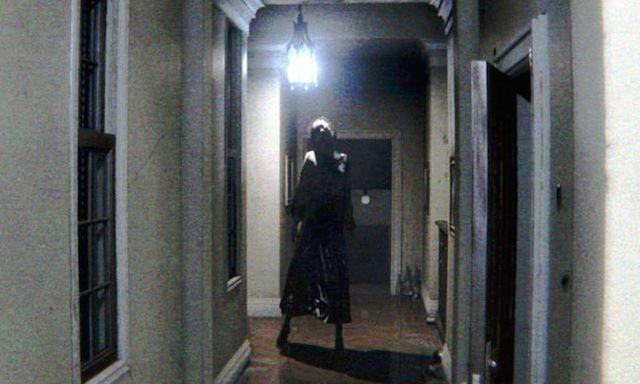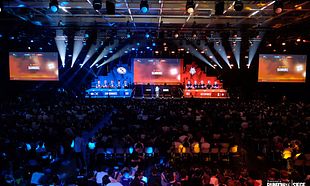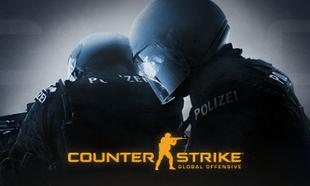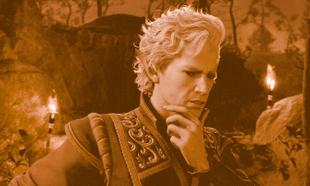You're walking slowly, gun drawn, through the ruins of a house.
There's only a faint hum of music, no sound effects other than scratching of your footsteps. The camera shifts angle as you start down the corridor. Nothing in front of you except a blind corner in the corridor.
Your palms are sweaty. You're hunched forward, on a knife's edge, waiting for a noise or a creak - anything that will tell you where to fire. The corner draws closer. Your footsteps break into a run. Next minute, your running wildly as the sound of breaking glass makes you jump five feet of your skin and probably scream at the top of your lungs.
The dog scene in 'Resident Evil' was gaming's first jump-scare. It was loud, obvious, brutally effective, and probably caused a hundred heart attacks from frightened parents. When you look at the footage now on longplays, it looks quaint by today's standards. It's easy to ridicule the fidgety animations, the childish use of jump-scares, but it worked because you're bought into it.
Underneath the hotel in Last of Us. You knew something was going to happen so the tension was horrific. Amazing use of sounds and visuals. Had to pause, pace and psyche myself up to finish that section.
— Heather 🇯🇴 (@HeatherMacAttak) October 19, 2019
Horror only works when your imagination fills in the blanks. Any movie director who's done horror will tell you that audiences can make themselves scared far better than they can. We let our imagination run wild when we're terrified. For gaming, it's no different. If anything, it's perfectly suited for it.
Think about it - when you play videogames, and it doesn't matter whether it's 'Castlevania' on the NES or Hideo Kojima's 'P.T', your imagination is working. After all, gaming is all about putting yourself into someone else's shoes. We're imaging ourselves crawling along a vent as an alien hisses its way towards. We see ourselves slowly making our way through Silent Hill, waiting for that awful siren to sound off. We believe that Mr. X is right behind us every step of the way, just waiting for his moment to strike.
I think jump scares and gore are easy , most unsettled by far I've ever been playing a game was when the Campbell starts ringing you on the codec with all that unhinged bollox in MGS2
— Chris Greene (@HateChrisGreene) October 19, 2019
Gaming works so wonderfully with horror because our imagination does the work where graphics or the mechanics of the game itself can't. We let the fear in naturally, willingly, when we're playing something like 'Fatal Frame', 'Alien: Isolation' or 'Condemned'.
The best horror games, however, understand that it's not enough to simply allow our imagination to run wild. There has to be atmosphere. Again, this is something that transfers from filmmaking to gameplay. While the opening example of 'Resident Evil' scaring the hell out of people might seem effective, the truth is it's the lingering sense of dread that sticks with people far longer than anything else.
When Lara Croft encounters dinosaurs for the first time in Tomb Raider 1, back on the old PS1, I just wasn't expecting dinosaurs!
Also just opening doors in original Resident Evi, it was so slow and added to the suspense— 🎈🤡 Lady HD 🔪🦀 (@Bubblenoma) October 19, 2019
It's the build-up, the suspense, the tension that gives it the pay off that sticks in people's minds. Everyone who's played 'Legend of Zelda: Ocarina of Time' will remember the Redead vividly, but it's hearing that awful noise the first time and not knowing what it was, and then seeing them shamble towards you, that made the moment so memorable.
The best example of atmosphere in horror gaming has to be Hideo Kojima's failed experiment, 'Silent Hills: P.T.', which was set entirely inside a suburban house. The game opens on a first-person perspective, and sees you walking through an L-shaped corridor, reaching the end of it and starting back where you began.
It's not before long that, around you, reality begins to break apart. A radio news broadcast describes a violent family murder. Cockroaches begin to appear, along with hand-written messages on the wall. Doors creak open, only to snapped shut by some unseen hand.
The game looks photorealistic, like you're watching a movie, complete with grain on the screen and authentic light. The looping nature of the game lulls you into that sense of security, but the cyclical nature of it - that it gets progressively worse each time you repeat the loop - speaks to themes about mental anguish, physical abuse and trauma. You're living the horror over and over again.
What kind of movie can do that? There's no jump-scares in 'Silent Hills: P.T.', not really anyway, and the nature of the game means you can't fight or attack the ghosts. In fact, when they do reach you, you simply begin the loop again. That in itself is the true horror - that you are doomed to repeat it again and again.
Because we put ourselves in the place of the game's protagonist, we live that horror.









































































